This week’s heavy rains have caused widespread flooding in Bali. From Jembrana to Nusa Penida, communities are struggling to protect themselves against flash flooding and pervasive water damage. While many communities have only just had the chance to catch their breath after flash flooding events in October and early November, another front of heavy rain has caused further damage.
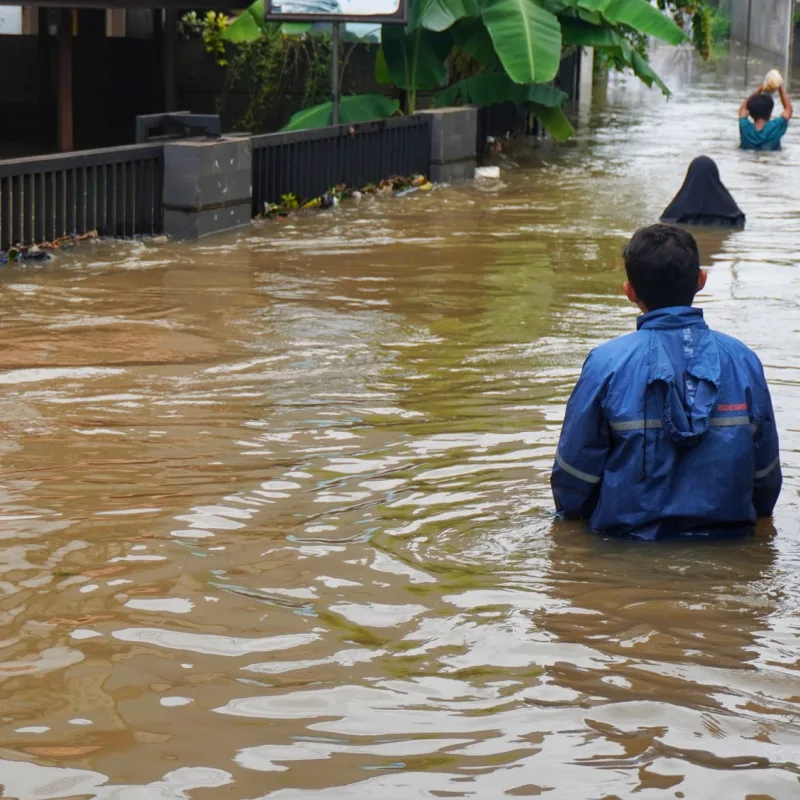
In Nusa Penida, heavy rains on Monday afternoon caused flood waters to rise above the knee in Ped Village and the surrounding communities. The nearby river channels filled with tree branches, which clogged the culverts, causing the rising water to flood into the road, shops, and homes. The rising water was pushed further into the building by drivers attempting to pass through the flooded streets.
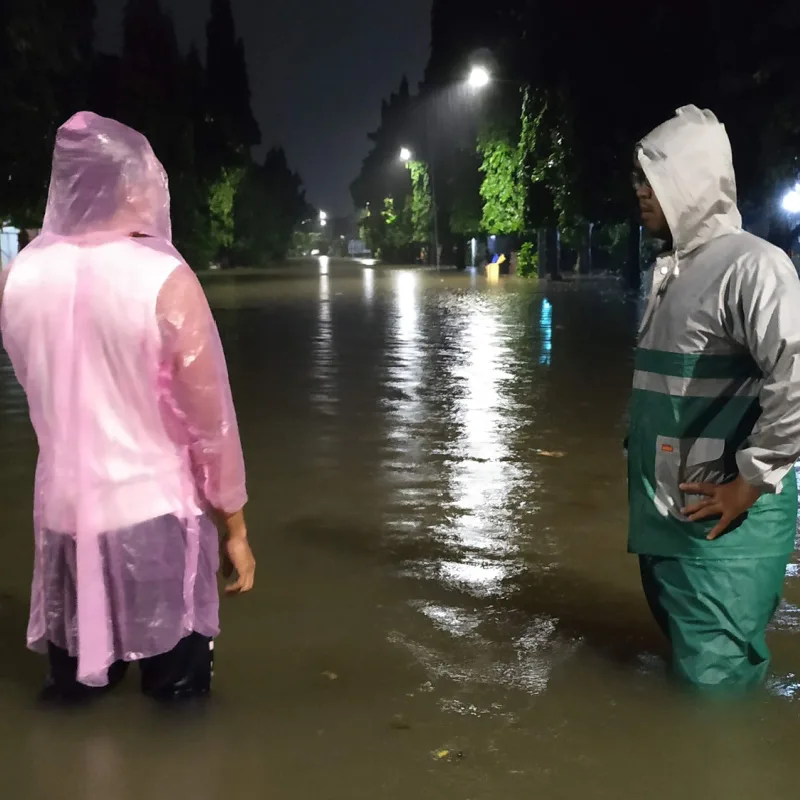
A BPDB Disaster Management Agency coordinator, Ketut Sangut, said that rains started in the early morning, paused and continued from 5 pm to 10 pm on Monday evening. A huge community relief effort was immediately undertaken by local residents, police, the army, and members of the disaster management agency.
By Tuesday afternoon, the roads in Ped Village were passable once again, though the extent of the damage is undeniable. According to local reporters, initial damage costs in Ped Village and six other surrounding communities add to around IDR 3.67 billion (USD 233,000).
Top 5 Travel Insurance Plans For 2023 Starting At $10 Per Week
Easily Earn Points For Free Travel
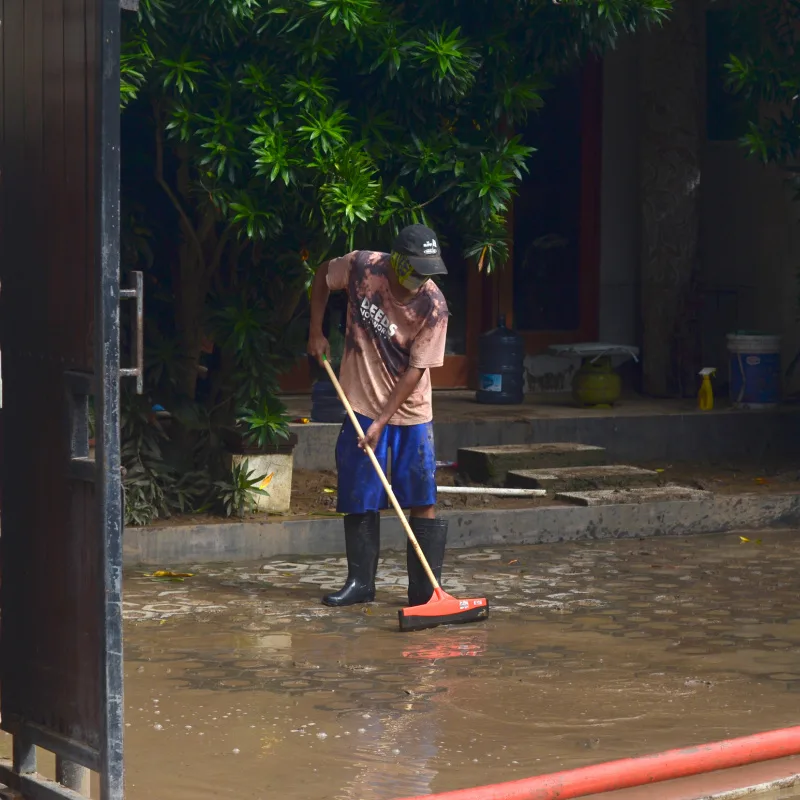
Back on mainland Bali, in Jembrana Regency, the flooding situation has worsened this week. On Monday evening, flooding in Kaliakah Village and Tuwed Village destroyed as many as 85 homes. The flash flood was triggered by heavy rains and a backlog of debris caught in the weir at the Banyubiru I Dam on the Kaliakah River. This was exacerbated by debris trapped along the Kaliakah River and neighboring drainage canals.
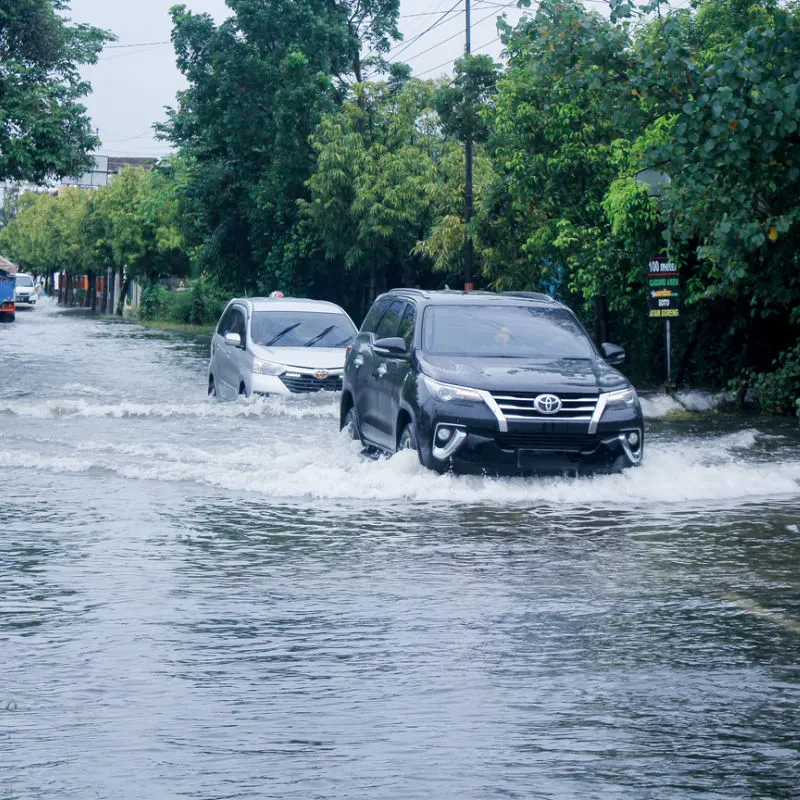
The Acting Head of the Jembrana Regional Disaster Management Agency (BPBD), I Putu Agus Artana, told reporters on Tuesday evening that relief efforts are underway and officers have been deployed to all communities affected by the flooding.
He confirmed that families had been offered evacuation by that some had chosen to stay since the water had begun to recede. He said, “From the results of our assessment, there are around 70 families affected. The water rose almost to the waist of an adult because there was an overflow of water from the gutter and the Kaliakah River”.
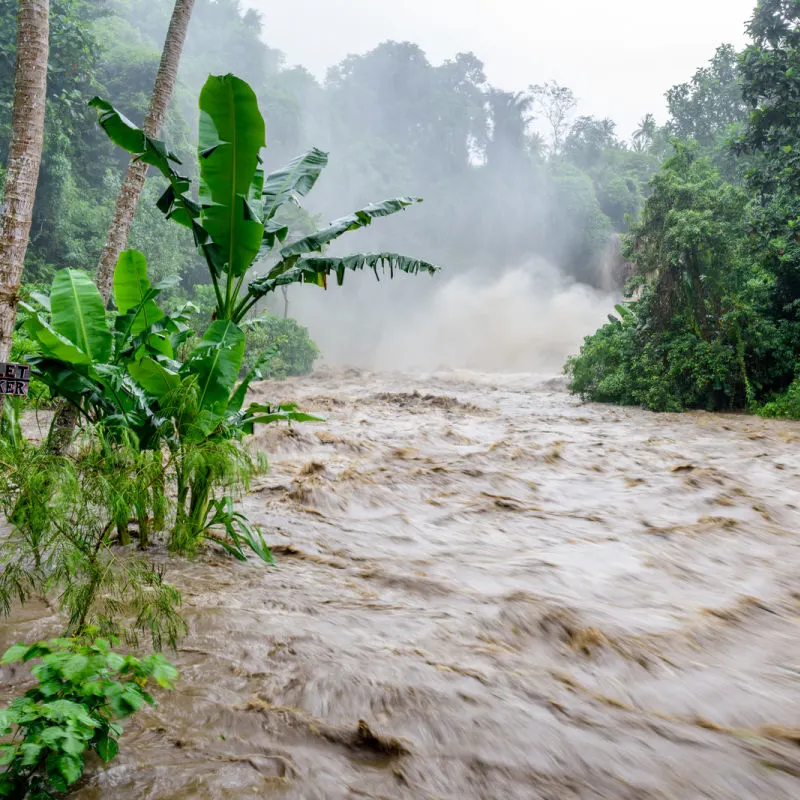
Many families are understandably reluctant to leave their homes and take the government’s offers of permanent relocation. Following the bridge collapse and the severe flooding in Bilk Poh Village in Jembrana in mid-October, just 32 of the families impacted by the natural disaster have agreed to reclamation support from the government. A total of 39 homes were totally destroyed during the flooding event, with dozens more damaged but reparable.
The Head of the Jembrana Regional Disaster Management Agency (BPBD) has confirmed that the relocation plan is still in progress. He told reporters, “Indeed, there must be residents’ approval. We cannot intervene if someone disagrees. So from the assessment that has been carried out by the village and from the Bali BPBD team, including us in Jembrana, there will be 32 families who will be relocated. Among them, 26 families are residents of Biluk Poh. Kangin and 6 families from Banjar Anyar Kelod”.
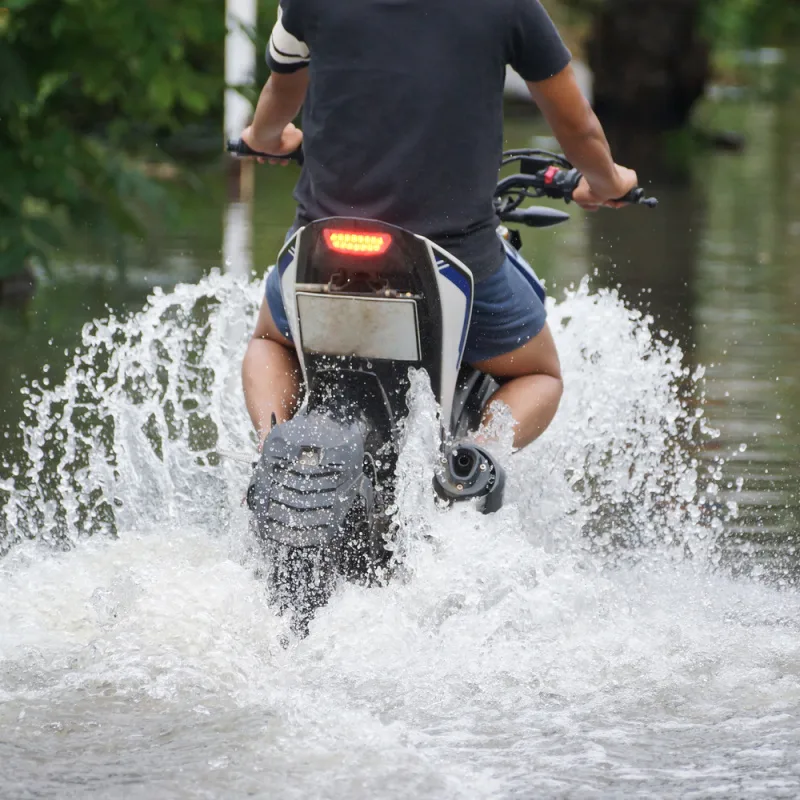
The families who have refused relocation support have agreed to receive a financial assistance package to build a new home in the same area. All the families involved in the relocation program have access to three pieces of land provided by the Bali government.
Budiasa has said “What is certain is that there are three places that have been provided. [They] are free to choose where [they] want. Later, when the location has been determined, a house construction assistance proposal will be made to BNPB (National Disaster Management Agency)”.
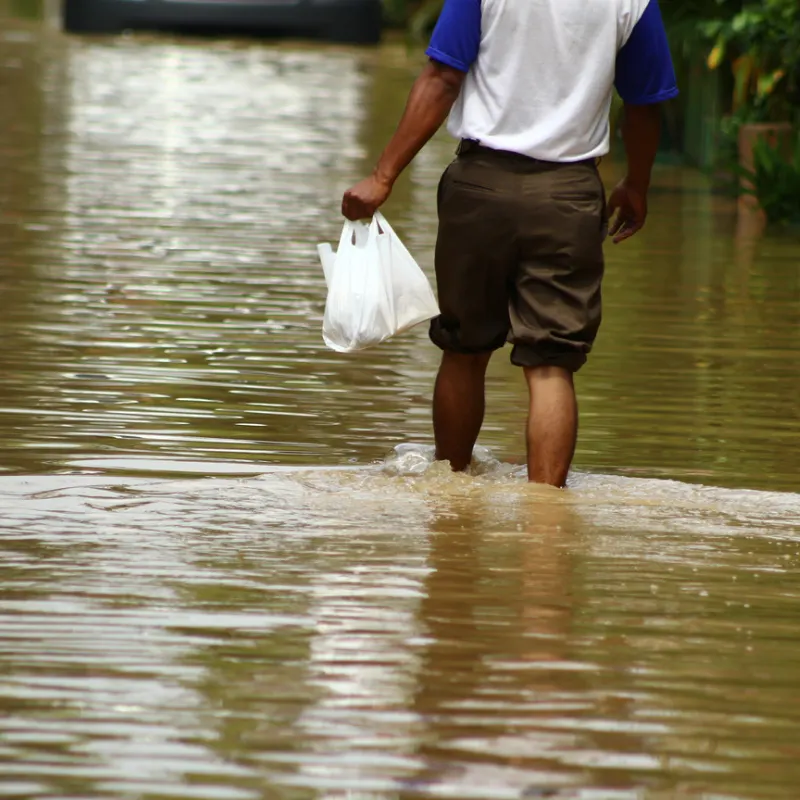
The saddening stories of the families impacted by the increasingly regular natural disasters in Bali add only further evidence to environmental groups who are calling on the government to do more to control development levels on the island as new research has found a direct link between the level of tourism development in Bali and a rise in natural disasters impacting vulnerable rural communities.
Remove All Ads & Unlock All Articles… Sign up for The Bali Sun Premium

Plan Your Bali Holiday:
Book The Best English Speaking Drivers For Airport Transfers & Tours
Choose From Thousands of Bali Hotels, Resorts, and Hostels with Free Cancellation On Most Properties
Book Cheap Flights To Bali
Don’t Forget Travel Insurance That Covers Medical Expenses In Bali
For the latest Bali News & Debate Join our Facebook Community
SUBSCRIBE TO NEW POSTS
Enter your email address to subscribe to The Bali Sun’s latest breaking news, straight to your inbox.
Discover more from The Bali Sun
Subscribe to get the latest posts sent to your email.

Steph
Sunday 4th of December 2022
If locals would stop putting concrete everywhere and cutting tree, it would not happen... Leaving some grass, garden area isnt just good looking, its also prevent flood by letting the water go into the ground... And so, refill the ground water in the same time
Wayan Bo
Thursday 1st of December 2022
Hopefully no sharks in the streets.
Rod Wilkinson
Thursday 1st of December 2022
Last paragraph says it all,